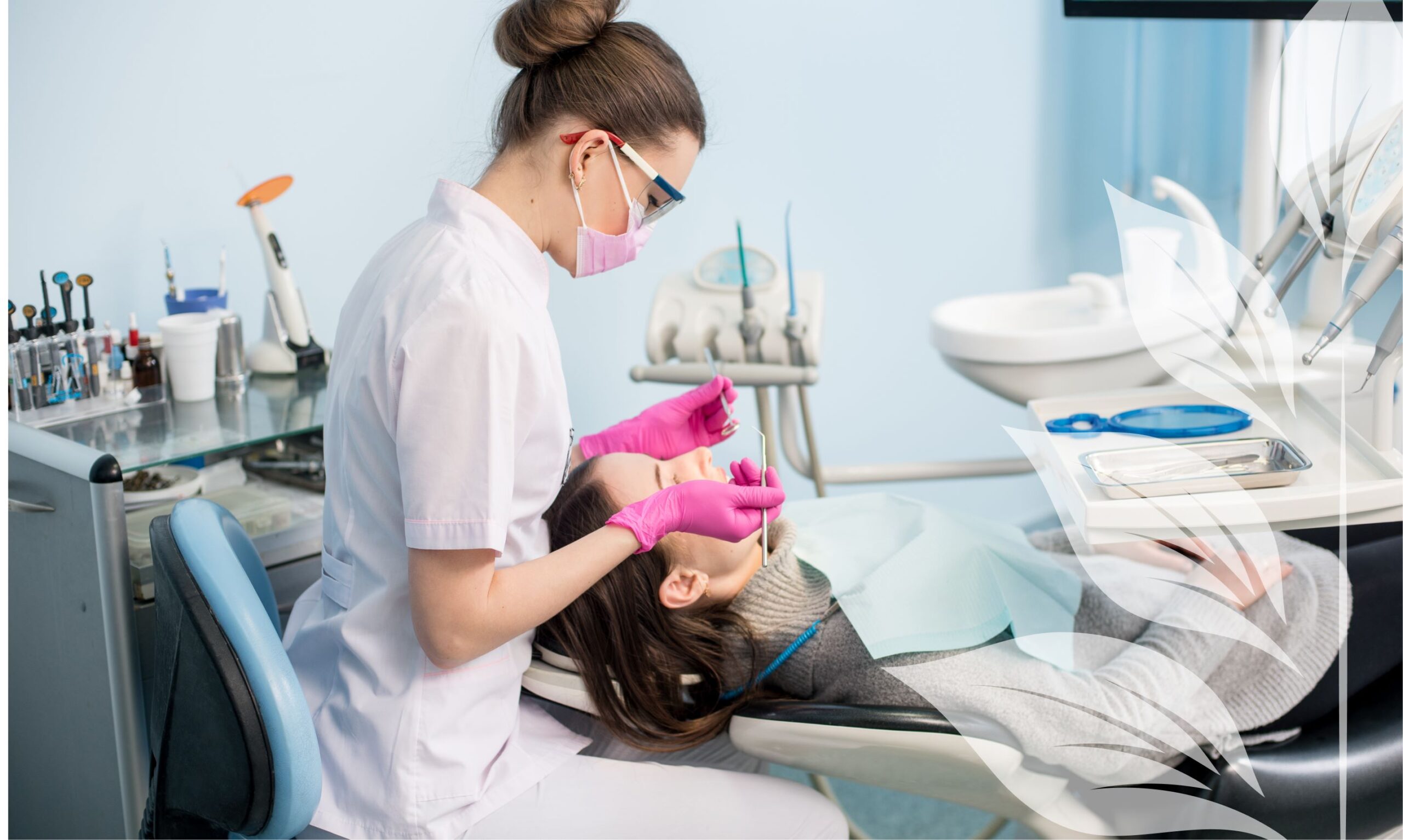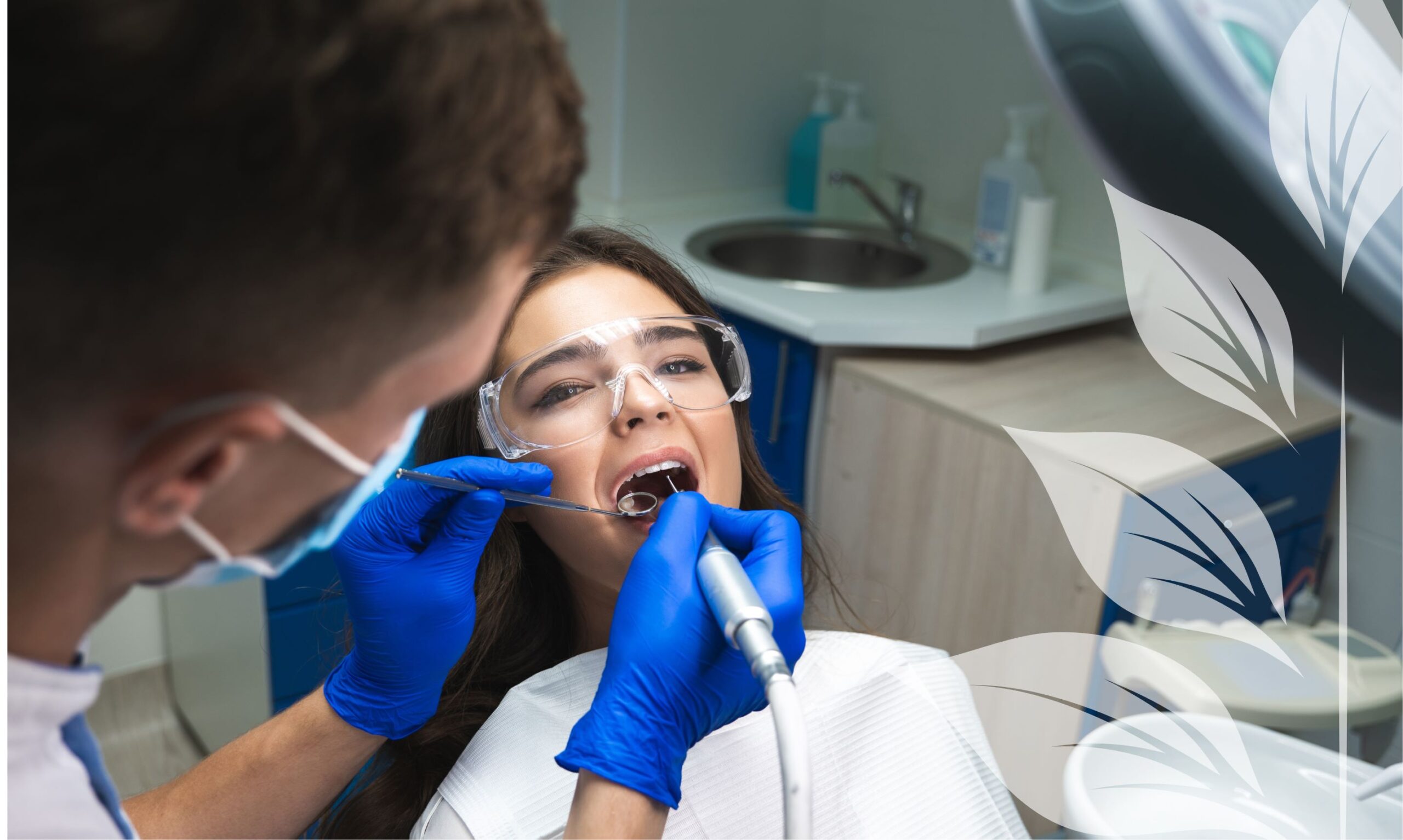Regaining Gum Health With Periodontal Therapy
When it comes to protecting your oral health, the best thing you can do is to practice a great oral hygiene routine. Brushing your teeth, flossing, and using mouthwash each day ensures you reach those difficult-to-clean areas, such as between your teeth and beneath your gum line, so they’re all equally important to your daily routine.
But what do you do if you already have an oral health issue like gum disease? Thankfully, you’re not out of options! This is where a deep cleaning of your teeth comes in. These cleanings are an essential part of getting rid of moderate periodontitis and restoring your gum health in the short and long term.
Without periodontal therapy, gum disease will only get worse, so it’s important to schedule your treatment as soon as possible instead of putting it off. If you don’t know much about deep cleanings, however, it’s understandable you might be wondering what they involve and how they work. To help you know what to expect as you prepare for your deep cleaning, we’ve put together a guide on this periodontal therapy.
Gum disease progresses until you treat it.
Gum disease is a condition where bacteria build up around your gums and begin attacking them, causing them to become inflamed and infected. There are two stages of gum disease, the first of which is gingivitis. During this stage, you might notice that your gums bleed when flossing and become swollen or irritated afterward.
Thankfully, though, learning how to stop bleeding gums is generally simple at this stage—all you need to do is implement a great oral hygiene routine, including flossing at least once a day. If you stick with it, your gums should stop bleeding after one or two weeks. Easy enough, right?
When gingivitis isn’t identified and treated early, however, it can develop into the second, more serious stage of gum disease called periodontitis. During this stage, the attack on your gums causes them to begin pulling away from your teeth, allowing bacteria beneath the gum line.
Once there, bacteria begin attacking your tooth roots and the other supporting structures of your teeth. If it goes untreated, periodontitis can cause permanent damage to your gums and your teeth, including receding gums and the formation of deep pockets between your gums and teeth.
These pockets often pick up food debris as you eat and are hard to clean out effectively, which can further worsen your periodontitis. It’s when you reach this mild to moderate stage of periodontitis that you need more involved periodontal therapy, like a deep cleaning.
Without a dental deep cleaning of your teeth, your gum disease will continue to worsen and you may experience other symptoms, including:
- Persistently bad breath.
- Swollen, tender, or darkened gums that bleed easily.
- Receding gums.
- Loose teeth.
- A change in the way your bite fits together.
- Pain when chewing.
- Tooth loss.
The progression of untreated periodontal disease can lead to lasting consequences for your oral health, which is why it’s so important to floss regularly and seek dental treatment if you notice any symptoms.
A deep cleaning of your teeth is different from a regular dental cleaning.
While your typical professional dental cleaning simply involves cleaning the visible portion of your teeth through flossing, removing tartar from your teeth, and then polishing them clean with specialized toothpaste, deep cleanings go beneath the surface to clean your tooth roots underneath your gum line.
This reflects the very different purposes of these two types of cleanings. Regular professional dental cleanings are part of standard preventive dental care, but deep cleanings are designed to treat an active oral health issue to restore the health of your teeth and gums.
This makes deep cleanings a more involved and lengthy process, though exactly how long your deep cleaning takes will depend on the severity of your case. You might complete your deep cleaning in a single appointment—though it will still make for a longer appointment than a standard dental cleaning—or it might take a couple of appointments.
A deep cleaning of your teeth is designed to halt gum disease in its tracks.
A deep cleaning consists of two procedures called scaling and root planing. Before he begins the cleaning process, the first thing Dr. Allred does is numb your mouth to ensure that the procedure is completely painless. Then he begins scaling, the first step of the deep cleaning process. This involves using specialized tools to reach beneath your gum line and deep clean teeth roots of plaque and bacteria. Next, Dr. Allred smooths out the surface of your tooth roots, which makes it harder for bacteria to accumulate and grow on them in the future, helping to prevent gum disease.
Even though a deep cleaning can make your mouth sore for a few days while your gums heal, it’s essential to stop the progression of periodontitis before it gets too advanced for this procedure to work. It clears bacteria from underneath your gum line and puts your gums in the best possible position for future health, helping them heal and reattach to your teeth faster than they otherwise would. Your soreness should be minor, though, so it’s easy to manage with over-the-counter pain medications—the oral health that a deep cleaning can help you regain easily makes it worth it!
You have the power to protect yourself from future gum disease.
Thankfully, gum disease is generally easy to prevent at home with a great oral hygiene routine, which should include brushing your teeth for two minutes twice a day as well as flossing and using mouthwash every day.
Sticking to this daily routine and visiting your dentist faithfully every six months are both essential for prevention and for catching any potential issues early—before you need more involved or more expensive treatments. For the same reason, it’s important to always take potential signs of gum disease, such as bleeding gums, seriously.
Additionally, if you’ve been diagnosed with gum disease before, you should be extra careful with your oral hygiene and should make sure to follow all of Dr. Allred’s instructions for your oral health. These steps are all incredibly easy to fit into your routine and don’t take up much time, so keeping your gums healthy is usually easy once you’ve taken the time to form new habits!
Although deep cleanings sound like relatively straightforward procedures, they’re often the key to stopping periodontitis in its tracks and restoring your gum health. If you’d like to learn more about dental deep cleaning or periodontal cleaning in Hampton or Griffin, GA, feel free to schedule an appointment with Dr. Allred at any time.





